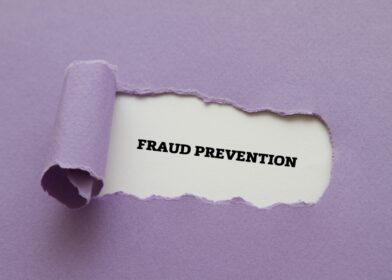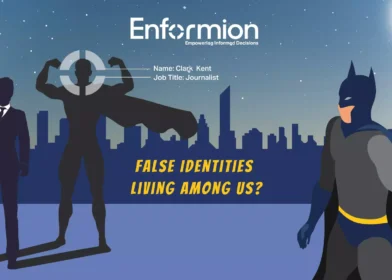What Makes KYB Essential for Modern Businesses
In today’s fast-moving business world, trust and compliance are non-negotiable. As organizations build partnerships, onboard vendors, and expand into new markets, verifying the legitimacy of the businesses they engage with has become just as important as knowing their customers. This is where Know Your Business (KYB) comes into play. Much like KYC (Know Your Customer), KYB ensures that companies are working with verified, trustworthy partners while remaining compliant with regulatory requirements. In this blog, we’ll break down what KYB is, why it matters, how it strengthens transparency, and what role it will play in the future of business verification.
Understanding KYB
Know Your Business (KYB) is the framework organizations use to confirm the authenticity, ownership structure, and overall legitimacy of the companies they interact with. Rather than taking a business entity at face value, KYB requires thorough checks into a wide range of data points, including:
- Business registration details: Confirming that the company is legally incorporated and in good standing with local authorities.
- Beneficial ownership: Identifying who actually owns and controls the business, which can uncover hidden stakeholders or shell company structures.
- Financial history: Reviewing credit reports, payment histories, and financial disclosures to assess risk and stability.
- Connections to high-risk activities: Screening for links to money laundering, fraud, corruption, or other illicit practices.
What makes KYB distinct from its counterpart, Know Your Customer (KYC), is its scale and scope. While KYC zeroes in on the identity and risk profile of an individual—such as a banking customer or account holder—KYB examines the entire organizational entity. This often means looking beyond surface-level information to trace corporate hierarchies, cross-border relationships, and potential affiliations with politically exposed persons (PEPs) or sanctioned entities.
For example, KYB might involve validating that a supplier in another country is properly licensed to operate, confirming that its directors have no ties to fraudulent enterprises, and ensuring that it complies with international anti-money laundering (AML) regulations. This extra layer of diligence not only protects businesses from financial and reputational risks but also ensures compliance with strict regulatory standards.
The importance of KYB becomes particularly evident in industries such as finance, fintech, and global trade, where transactions frequently involve large sums of money and complex cross-border relationships. Regulators in these industries have set heightened due diligence requirements because failure to identify fraudulent or non-compliant entities could expose businesses to money laundering schemes, terrorist financing, or major compliance penalties.
Why KYB Matters in Today’s Business Landscape
Modern businesses don’t operate in silos—they thrive within complex ecosystems of vendors, suppliers, contractors, payment processors, and global partners. While this interconnectedness fuels innovation and efficiency, it also introduces significant risks. If one link in the chain is compromised, it can jeopardize the integrity of the entire operation. This is where KYB becomes indispensable. Without proper business verification, organizations risk exposure to fraud, reputational harm, regulatory fines, and even operational disruption.
There are several key reasons why KYB has emerged as a cornerstone of modern business practices:
- Regulators Are Raising the Bar
Global and domestic regulations are becoming stricter in response to rising financial crime. Laws such as the Bank Secrecy Act (BSA) in the United States, the USA PATRIOT Act, and international Anti-Money Laundering (AML) directives mandate that businesses verify and monitor their partners to prevent illicit activity. Non-compliance isn’t just a technical oversight—it can result in hefty fines, legal penalties, and lasting reputational damage. KYB ensures organizations can meet these evolving compliance obligations with confidence.
- Fraud Is Increasingly Sophisticated
Today’s fraudsters leverage shell companies, layered ownership structures, and cross-border transactions to mask illicit activities. Without KYB, these tactics often go undetected until it’s too late. By verifying the legitimacy of a business and its ownership structure upfront, organizations can uncover hidden risks before engaging in transactions. In this way, KYB acts as both a preventative safeguard and a proactive defense mechanism, reducing the likelihood of falling victim to fraud schemes.
- Reputation Is on the Line
Customers, investors, and regulators all expect businesses to conduct thorough due diligence. A single partnership with a fraudulent or non-compliant entity can cause irreversible reputational damage. In today’s digital-first marketplace, where news spreads instantly, maintaining a reputation for transparency and integrity is essential. KYB reassures stakeholders that an organization prioritizes ethical business practices and operates with accountability.
Ultimately, KYB goes beyond meeting compliance requirements—it creates a foundation of trust and accountability that supports long-term growth. Businesses that embed KYB into their core operations gain a competitive advantage by reducing risk exposure, streamlining onboarding processes, and positioning themselves as responsible and trustworthy market players.
Strengthening Trust and Transparency
Now that we have an understanding of why KYB matters in today’s business landscape, it’s important to highlight its role in strengthening trust and transparency. When businesses can confidently demonstrate that their partners, suppliers, and clients are verified and compliant, they foster stronger relationships with both customers and regulators. This level of transparency reduces uncertainty, promotes ethical operations, and paves the way for smoother collaborations across industries.
A key aspect of KYB is the enhanced due diligence it enables. By clearly identifying beneficial owners and confirming the legitimacy of a business, organizations gain greater visibility into who they are engaging with. This level of clarity helps prevent hidden ownership structures or fraudulent entities from going unnoticed. In addition, KYB significantly reduces risk exposure by identifying potential red flags early in the process, whether those risks stem from questionable ownership, financial instability, or ties to high-risk activities. Proactively uncovering these issues protects businesses from financial losses and shields them from reputational harm.
Perhaps most importantly, KYB strengthens customer and partner confidence. Stakeholders today are highly attuned to the importance of ethical operations, and they are more likely to engage with organizations that demonstrate a serious commitment to compliance and transparency. By prioritizing KYB, businesses send a clear message that they value integrity and accountability. execution, ensuring every decision is driven by data rather than assumption. The result is sharper targeting, more relevant outreach, faster sales cycles, and stronger revenue growth.
The Future of Business Verification
As regulations evolve and technology advances, KYB will only become more integral to modern business practices. The future of business verification is moving toward automation, real-time monitoring, and advanced data analytics.
Machine learning and AI-driven tools will enable businesses to analyze vast datasets instantly, flagging potential risks and streamlining onboarding. At the same time, regulators are expected to continue tightening requirements, making proactive verification an essential part of operations rather than an optional step.
For global companies, KYB will also help overcome challenges tied to cross-border partnerships, where varying legal frameworks and cultural standards can complicate verification efforts. By leveraging KYB solutions, businesses can ensure compliance across regions and foster seamless international growth.
Final Thoughts
In an environment where regulatory compliance, fraud prevention, and corporate accountability are paramount, KYB is no longer optional—it’s essential. Modern businesses must embrace robust verification practices to protect their operations, safeguard their reputation, and build lasting trust with customers and partners.
Enformion’s advanced data intelligence solutions empower organizations with the insights they need to make informed, compliant decisions about who they do business with. If you’re ready to strengthen trust, reduce risk, and future-proof your operations, explore how Enformion can support your KYB needs today.



